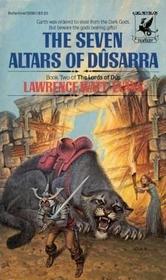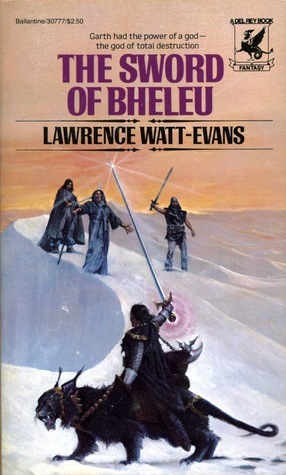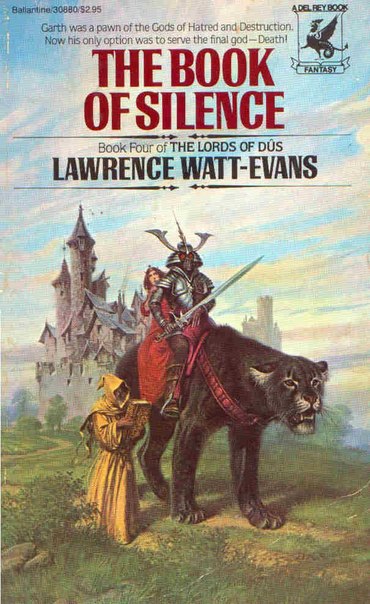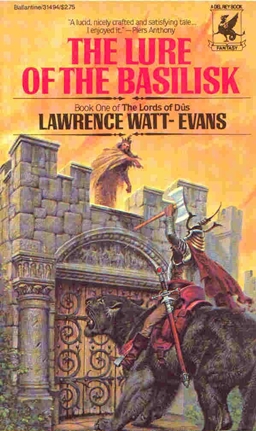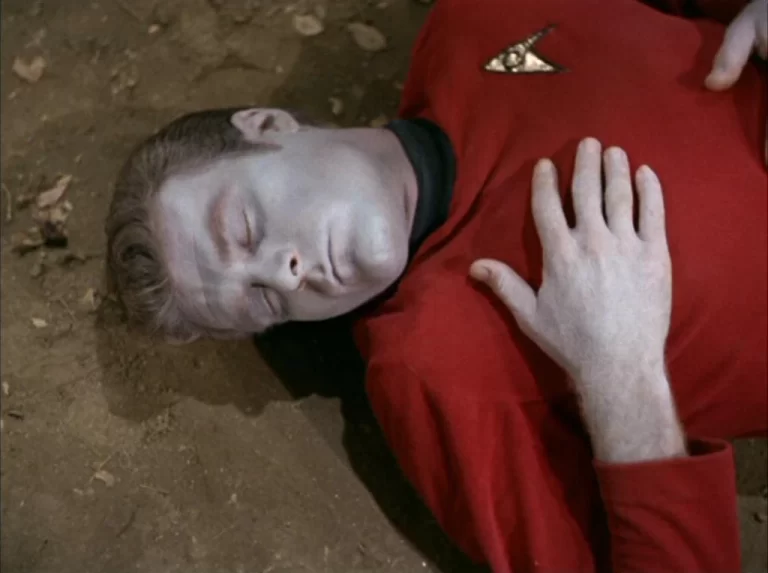(Originally posted on
The Lords of Dus were the first fantasy novels I ever read by Lawrence Watt-Evans–way, way back in the early 80s. I’d seen the four novels sitting on the rack at Waldenbooks for a while and finally decided to give the first one, The Lure of the Basilisk, a try.
Lawrence hooked me right from the start. He had a way of making even the mundane interesting as his inhuman protagonist “Garth” tried to navigate a human world. (Apparently he named the character “Garth” because he had only slits for a nose like the character “Simon Garth, the Living Zombie” from Marvel Comics.) The character is far different from most fantasy antagonists up to that point, as he was entirely inhuman–an “Overman” that had been created by magic as soldiers in ancient wars.
What truly hooked me, however, was that unlike most of the fantasy epics I’d read before, Garth didn’t have some mystical ‘gift’ or ‘insight’ that allowed them to pluck a magic sword or toss a magic ring. No, he just cobbled together solutions out of whatever makeshift plans or ideas he could come up with. He got things done, but it was usually messy and haphazard. Like Indiana Jones’s line from Raiders of the Lost Ark: “I’m making this up as I go.” It did turn out later that Garth had a mystic ‘destiny’–but the destiny kinda sucked and it was completely unwanted.
This was the norm for Lawrence’s characters. Courtesy of stumbling and seeking, they found their ways through tough situations by improvisation, stubbornness and wits. The solutions usually weren’t perfect, but they would get them done. This is what endeared me to him, and still does. He has definitely influenced my style of writing and character development.
The series incorporates a lot of fantasy cliches but manages to turn them on their head in most respects. Mystic destiny? Yes, but it’s mostly an unwanted curse that will kill a lot of people. Rescuing a maiden? Yes, but as an Overman, Garth has zero romantic interest in her. Great quests? Yes, but they’re never what they seem and wreak havoc on innocents. A powerful wizard as a patron? Yes, but he’s an apathetic nihilist. Etc., etc.
If you crammed together elements of Robert E. Howard’s Conan, Moorcock’s Elric, and some wry snippets of L. Sprague de Camp’s characters, you might get a rough estimate of what this series is like.
It’s well worth reading. If you like these, you’ll enjoy the Ethshar series by Lawrence.
